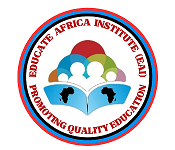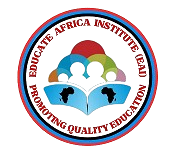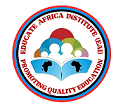The 2025 Budget Allocations for Education Seem to Address Pressing Challenges Considering Our Analysis – Educate Africa Institute (EAI)

The government of Ghana has allocated a total of GH¢7.18 billion to the education sector in the 2024 budget. This financial commitment is distributed across key educational initiatives, with GH¢3.5 billion assigned to the Free Senior High School (Free SHS) program, GH¢499.8 million to the Non-Academic Fee Policy, GH¢564.6 million for free textbooks, and GH¢1.788 billion towards the School Feeding Program. In addition, the uncapping of the Ghana Education Trust Fund (GETFund) is expected to make an extra GH¢4.1 billion available, specifically targeting Free SHS and related expenses.
The Educate Africa Institute (EAI) recognizes this budget as an essential Human Development Index (HDI)-focused investment. It seeks to address Ghana’s most pressing educational challenges while ensuring financial sustainability. However, the crucial concern remains: Will these allocations be effectively utilized to achieve their intended purpose?

Breaking Down the Budgetary Allocations
1. Free SHS Policy – GH¢3.5 Billion
The Free SHS program has significantly increased access to secondary education, eliminating financial barriers for many students. However, concerns about its sustainability, quality of education, and infrastructure challenges persist. The additional GH¢4.1 billion from the uncapped GETFund should help address these issues, ensuring better facilities, adequate learning materials, and improved teacher remuneration.
2. Non-Academic Fee Policy – GH¢499.8 Million.
This initiative aims to remove extra financial burdens on students, particularly costs related to administrative and miscellaneous fees. While this allocation is commendable, there should be mechanisms to prevent potential mismanagement, ensuring that funds directly benefit students and enhance the overall educational experience.
3. Free Textbooks – GH¢564.6 Million
Textbook shortages have been a longstanding problem in Ghanaian schools, affecting both public and private institutions. This budgetary provision is expected to bridge the gap, ensuring every student has access to the necessary learning materials. Proper monitoring and distribution strategies will be essential to avoid delays and wastage.
4. School Feeding Program – GH¢1.788 Billion
The School Feeding Program remains critical in enhancing student enrollment and retention, particularly in rural communities. However, concerns over the quality and consistency of meals provided must be addressed. Efficient fund disbursement and transparency in procurement processes will be key to ensuring that this initiative serves its intended purpose effectively.
Uncapping GETFund – A Game Changer?
The decision to uncap GETFund, making an additional GH¢4.1 billion available, is a major step towards improving educational infrastructure and resources. For years, the capping of GETFund has limited its potential impact, stalling key projects and affecting the quality of education. With this new financial injection, the focus should be on addressing overcrowded classrooms, improving teacher training, and investing in modern educational technology.

Ensuring Realistic and Effective Utilization
While the budget’s objectives align with Ghana’s human capital development goals, the effectiveness of these allocations will depend on:
Transparent Implementation: Regular audits and public accountability reports should be published to track fund utilization.
Infrastructure Development: Investments in classrooms, libraries, and digital learning tools should be prioritized.
Teacher Motivation: Competitive salaries, training programs, and incentives should be emphasized to maintain teaching quality.
Community Involvement: Stakeholder engagement, including parents and education-focused organizations, is essential for monitoring progress and ensuring that funds reach the grassroots level.
Ghana’s 2024 education budget is a bold and necessary investment in the country’s future, reinforcing the government’s commitment to free, quality education. However, to truly serve its purpose, the allocation must be realistic, well-monitored, and directed towards impactful improvements. The Educate Africa Institute (EAI) urges policymakers and stakeholders to ensure accountability and efficiency in fund management to guarantee that every Ghanaian student benefits from these investments.
Education remains the backbone of national development, and with the right implementation strategies, this budget could mark a turning point in Ghana’s educational transformation.
Signed
William Boadi
Executive Director of Educate Africa Institute (EAI),
Educationist, Political Analyst, and Social Worker
0541935106
Anthony Cobbinah
Educational Psychologist, Quality Assurance and Advocacy, EAI.
0243679469
EAI: EDUCATION AND SOCIAL JUSTICE



